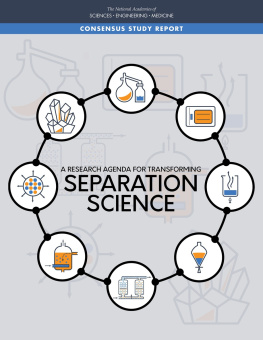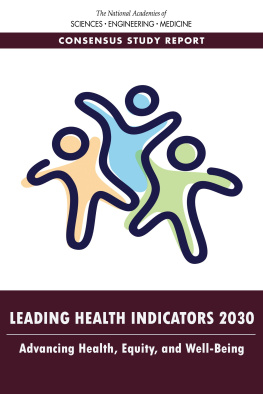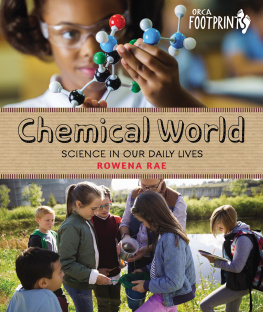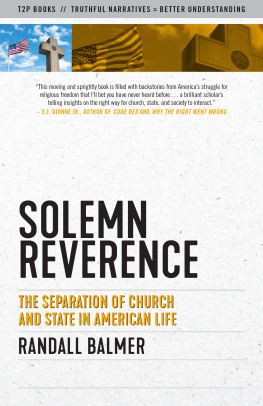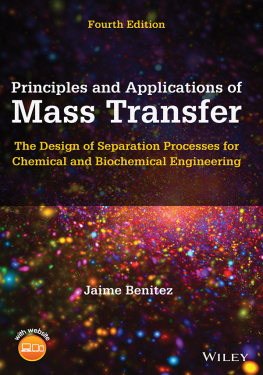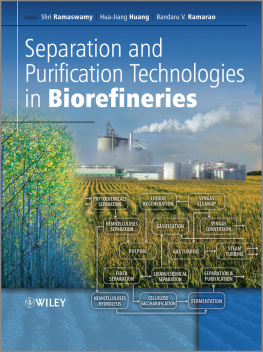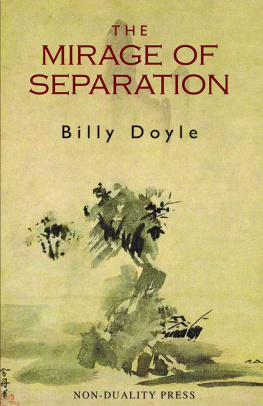A
Committee and Staff Biographical Sketches
COMMITTEE
Joan F. Brennecke (NAE), Chair, is a professor in the McKetta Department of Chemical Engineering of the University of Texas at Austin. Earlier, she was the Keating-Crawford Professor of Chemical Engineering at the University of Notre Dame and was the founding director of the Center for Sustainable Energy at Notre Dame. She joined Notre Dame after receiving her PhD and MS (1989 and 1987, respectively) at the University of Illinois at UrbanaChampaign and her BS at the University of Texas at Austin (1984). Her research interests are primarily in the development of less environmentally harmful solvents, including supercritical fluids and ionic liquids. In developing those solvents, Dr. Brenneckes primary interests are in the measurement and modeling of thermodynamics, thermophysical properties, phase behavior, and separations. Major awards include the 2001 Ipatieff Prize from the American Chemical Society (ACS), the 2006 Professional Progress Award from the American Institute of Chemical Engineers, the J. M. Prausnitz Award at the Eleventh International Conference on Properties and Phase Equilibria in Greece in May 2007, the 2008 Stieglitz Award from ACS, the 2009 E. O. Lawrence Award from the U.S. Department of Energy, and the 2014 E. V. Murphree Award in Industrial and Engineering Chemistry from ACS. Dr. Brennecke serves as editor-in-chief of the Journal of Chemical & Engineering Data. Her 170-plus research publications have garnered over 18,000 citations. She was inducted into the National Academy of Engineering in 2012.
Jared L. Anderson is a professor of chemistry at Iowa State University, where he joined the chemistry faculty in August 2015. He earned his BS from South Dakota State University in 2000 and his PhD from Iowa State University in 2005. He joined the chemistry faculty of the University of Toledo, where he rose through the ranks as an assistant professor (20052009), associate professor (20092011), and full professor (20112015). His research focuses on the development of stationary phases for multidimensional gas chromatography; alternative approaches in sample preparation, particularly in nucleic acid isolation and purification; and developing analytical tools for trace-level analysis in active pharmaceutical ingredients. Dr. Anderson received the National Science Foundation CAREER Award, the Emerging Leader in Chromatography Award given by LCGC magazine, and the American Chemical Society Young Investigator in Separation Science Award. In 2014, he was included in the Top 40 under 40 Power List by The Analytical Scientist magazine. In 2016, he received the Pittsburgh Conference Achievement Award. He has published over 170 peer-reviewed publications and five book chapters and has co-edited a book series published by Wiley, Analytical Separation Science. He holds five patents and serves on the editorial advisory boards of Analytica Chimica Acta, Analytical and Bioanalytical Chemistry, Journal of Liquid Chromatography and Related Technologies, and LCGC. He serves as editor of the Journal of Chromatography A.
Georges Belfort (NAE) is Institute Professor and member of the Howard P. Isermann Department of Chemical and Biological Engineering and the Center for Biotechnology and Interdisciplinary Studies of Rensselaer Polytechnic Institute (RPI). Earlier, he was on the faculty of the Hebrew University of Jerusalem, Israel. His research and teaching interests are primarily in the field of separations, particularly in liquid membrane filtration science and technology. His major contributions include fluid mechanics across, transport through, and surface modification of polymeric membranes. Dr. Belfort has also proposed and published a new mechanism of Alzheimer disease, has developed surfaces that maximize stem-cell expansion and that enable retinal pigment epithelium cells to grow on cobblestone surfaces, and, with Dr. Marlene Belfort, has offered a new approach to treatment for tuberculosis. His major awards include the 1995 American Chemical Society (ACS) Award in Separations Science and Technology, the 2000 American Institute of Chemical Engineers (AIChE) Separations Divisions Clarence G. Gerhold Award in Separations Science and Technology, the 2008 ACS E. V. Murphree Award in Industrial and Engineering Chemistry, the 2011 ACS Division of Biochemical Technologys Alan S. Michaels Award in the Recovery of Biological Products, the 2014 North American Membrane Society (NAMS) Alan S. Michaels Award for Innovation in Membrane Science and Technology, and the 2017 AIChE Food, Pharmaceutical, and Bioengineering Divisions Distinguished Service Award in Chemical Engineering. He was also honored with a research and best teacher award from RPI. Dr. Belfort is a member of the American Institute of Medical and Biological Engineers; is a co-founder, ex-president, and member of NAMS since 2005; was elected to the National Academy of Engineering in 2003; is a foreign member of the Bologna Academy of Science, Italy, since 2012; is a fellow of AIChE since 2013; and is chair of the board of the Society for Biological Engineering since 2015. His 242 peer-reviewed archival research publications have garnered 15,321 citations. He completed his BS (1963) in chemical engineering at the University of Cape Town, South Africa, and his MS and PhD degrees (1969 and 1972, respectively) in engineering at the University of California, Irvine.
Aurora Clark is the director of the Center for Institutional Research Computing and a professor of chemistry at Washington State University. She received a BS in chemistry from Central Washington University in 1999 and her PhD in physical chemistry from Indiana University in 2003. Dr. Clark studied the electronic structure of chemical systems that contain highly correlated f-block elements as a postdoctoral researcher at Los Alamos National Laboratory. She joined the chemistry department of Washington State University in 2005 as an assistant professor, receiving tenure in 2011 and promotion to full professor in 2016. Her research uses both quantum and statistical mechanics to study chemical processes in extreme and complex chemical environments with an emphasis on solution chemistry and liquid interfaces. She has pioneered new theoretical approaches for data fusion and analysis in molecular simulations in high-performance computing environments. Those interests are reflected in her role as deputy director of a U.S. Department of Energy (DOE) Energy Frontier Research Centers, on Interfacial Dynamics in Radioactive Environments and Materials. Dr. Clark has received several awards for scientific achievement and leadership, including the American Chemical Society (ACS) Dreyfus Lectureship, and in 2017 was elected a fellow of ACS. She is a member of the editorial advisory board of the Journal of Chemical Physics and a member of the DOE Council on Chemical Sciences, Geosciences, and Biosciences.
Brian Kolthammer is a retired industrial scientist with over 35 years of experience with Dow Chemical Company. Most of his career was spent in the development of new technologies and their implementation in commercial practice and in the resolution of issues encountered with application of laboratory discoveries to complex industrial processes. Those endeavors involved a variety of experimental approaches, from practical piloting and analytical determinations to modeling and simulation, to identify and lessen risks posed by the influence of byproduct and secondary chemistry in the presence of multicomponent process streams. The research resulted in the commercialization of more than a dozen new processes and products and gained a number of IR100 Awards for the company and recognition of Dr. Kolthammer as one of the American Chemical Societys Heroes of Chemistry in 2015. Dr. Kolthammer earned his BS and PhD from the University of British Columbia and spent 2 years as a NATO science fellow at Texas A&M University before joining the chemical industry.

